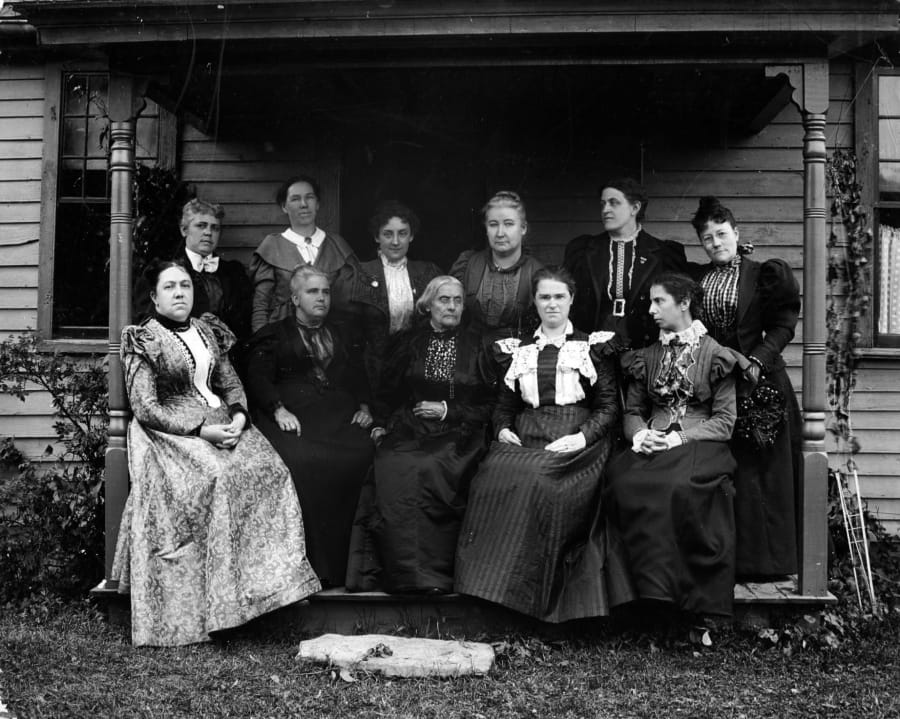During the 1871 Oregon State Fair, two visiting VIPs were obliged to share a tent.
Susan B. Anthony hated it. Sleeping anywhere but a well-appointed private bedroom was a first for the renowned New York suffragist. A famously outspoken, righteous and stern social reformer, she had no interest in adventures like sleeping on the ground.
When Anthony came west on a lecture tour, she met her polar opposite in a rough-and-ready survivor who’d suffered her way along the Oregon Trail in 1852. Abigail Scott Duniway may have emigrated from Illinois to Yamhill County, but she became a true pioneer Oregonian — homesteading and farming, starting a school and running a store. When her husband was severely disabled in a farming accident, she took on his labors; when she was traveling the Oregon Trail, she endured her mother and her little brother both succumbing to what was called “plains cholera.”
In her autobiography, Duniway recalled her mother weeping after giving birth to yet another girl: “Poor baby! She’ll be a woman someday! Poor baby! A woman’s lot is so hard!”
According to author Jennifer Chambers, Duniway’s remarkable can-do spirit was animated by her mother’s sorrow — and by the tales of male unfairness and cruelty that she heard from women who shopped in her store. Chambers’ short new book with a long title, “Abigail Scott Duniway and Susan B. Anthony in Oregon: Hesitate No Longer,” traces how the lesser-known suffragist cultivated an uneasy alliance with her famous heroine, and spent the bulk of her life fighting for women’s rights.




